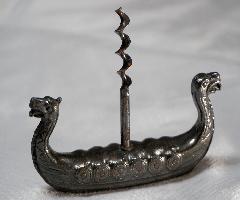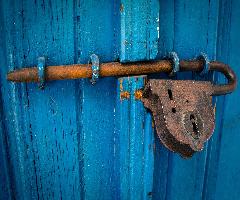The arrival of the spring, in addition to making me feel a little more optimistic and eager to get out and explore the surrounding world, has also increased my desire to improve my cultural life, and one of the best ways to achieve this goal is definitely to read more and try to analyze and understand the books I read in order to extract their essence, those main ideas that will make me feel that I have learned something new from reading a novel, a short story or any other type of book; therefore I started my hopefully long and
fruitful journey into the world of literature for 2017 with a book that is considered an existentialist classic, "The Plague" by Albert Camus, a novel published in 1947 in which the reputed French writer takes inside the walls of the French Algerian city of Oran(Algeria was still a French colony when the book was published) during one of the most dramatic and tragic events that could happen to a city, a plague epidemic.As I had anticipated the novel fascinated me from the very first pages. Camus uses a narrator, which towards the end of the story reveals himself to be Doctor Bernard Rieux, one of the main characters of "The Plague", to introduce its readers to the atmosphere of a colored, vibrant city whose inhabitants enjoy life just like in any other place at that time, but as soon as the first signs of a possible epidemic, the dead rats, appear in the streets of Oran in the middle of April, followed soon after by the first signs of disease in humans, the atmosphere starts to get darker and darker. It is in this gradually distressing background that the main characters are introduced in the plot. Dr. Rieux, Tarrou, Cottard, Rambert or Father Paneloux, along with other characters featured in a lesser degree in the action, are all of a sudden, whether they like it or not, part of a huge family united by those dramatic circumstances. When the city gates are closed and heavily guarded to prevent anyone from escaping and spreading the infection beyond the city of Oran, they have no other choice but to work together and try to fight their unseen, but deadly enemy with the very limited arsenal that they have at their disposal.
For many of those people there was simply no way out; they were destined to increase the death toll. At this point it's impossible for the reader not to sympathize with the characters, even with those with negative moral traits because their deeds were not as bad as to justify such a cruel fate. As a reader I tried to place myself into the position of the main characters and see whose opinions and attitudes towards the plague would be closer to my way of thinking. I would like to think that I would adopt a positive attitude and, just like Dr. Rieux, Tarrou and other characters, I would do my best a least to ease the suffering of the sick ones until they took
their last breath; I may be tempted to flee the town at any cost and then change my mind at the very last minute and fight along with the others who refused till exhaustion, just like the journalist Rambert, who eventually resists the temptation of smuggling his way out of Oran and stays to keep on fighting in that seemingly lost battle. I would certainly never share the points of view of Father Paneloux, who claims that the plague is a punishment sen by God to the people of Oran as a way to bring them back to the right path, because I consider that God cannot take away the lives of innocent children in such a way. However, there is no way of knowing for sure how I would react unless I was directly confronted with an epidemic of huge proportions. it is a scenario that sounds terrifying and I hope it will never turn into a grim reality, but of course everything is possible nowadays.And yet, in the middle of all this chaos brought by the merciless disease which doesn't spare anyone, regardless of age, social status and so on, and in spite of the apparent resignation and lack of hope, people never abandon to fight for life, and the efforts of those who are lucky enough not to get infected are rewarded as the disease gradually starts to give way after nine grueling months. Unfortunately, even in these moments in which hope is back as people feel that their ordeal may soon be over and their city will be back to a normal life, the grim reaper keeps on striking as one of the main characters, a man who survived after being in the proximity of the sick for so many months, is one of the last victims of the plague. The merciless disease takes its final tribute before admitting its defeat.
If there is a lesson that I have learned after reading this fabulous novel, it is the following one: No matter how hard things are, we must never give up fighting for the things we believe in. There are no guarantees that we can defeat the terrible obstacles which lie in our path, but if we resign ourselves to our fate and we don't act even when the odds are against us, we stand no chance of winning whatever battles we may be involved in. Some of the characters of 'The Plague' lived for long months away from the loved ones because they were not allowed to abandon a city in quarantine; they lived in doubt and fear that they might get the horrible disease day after day, but they eventually survived and celebrated their triumph against death. I will try to keep in mind this story of the triumph of human perseverance and lust for life and hopefully it will motivate me to keep on fighting for my ideals even against all odds!





